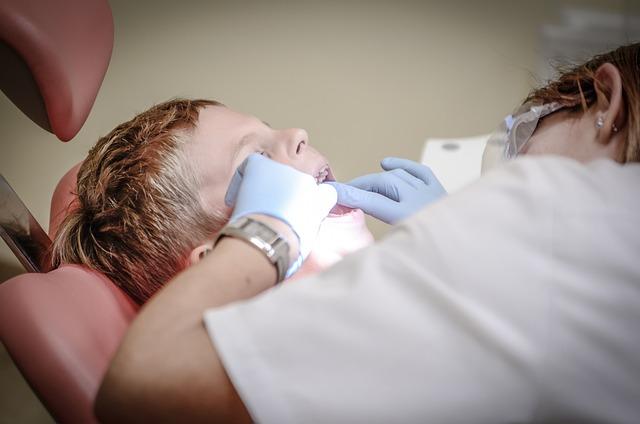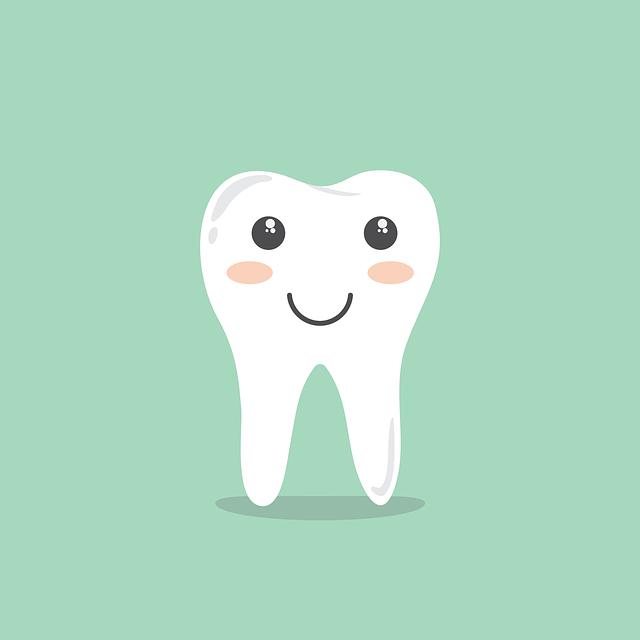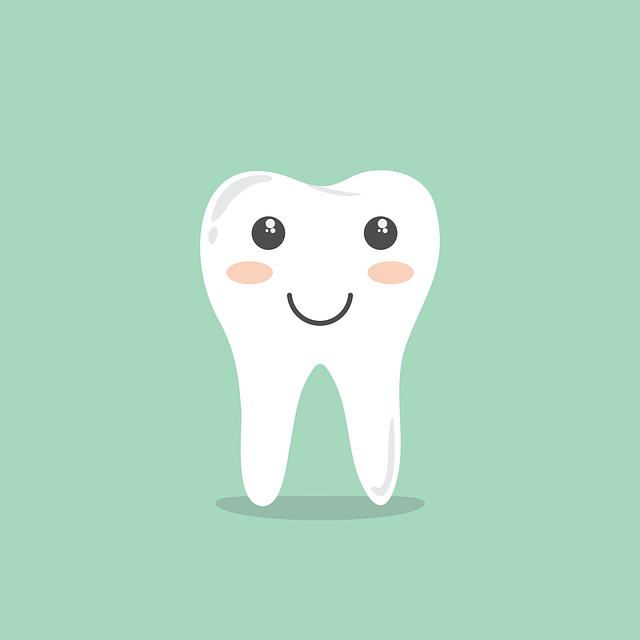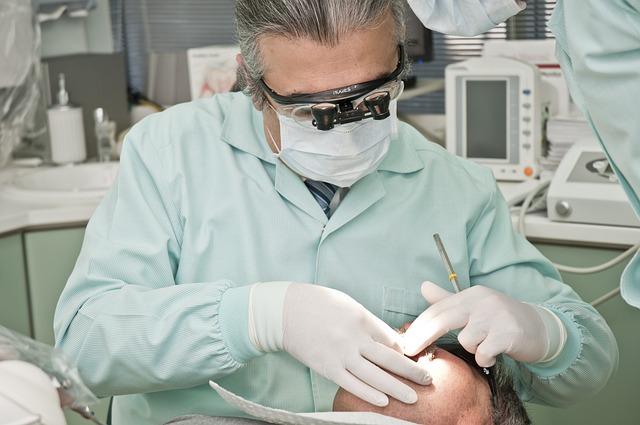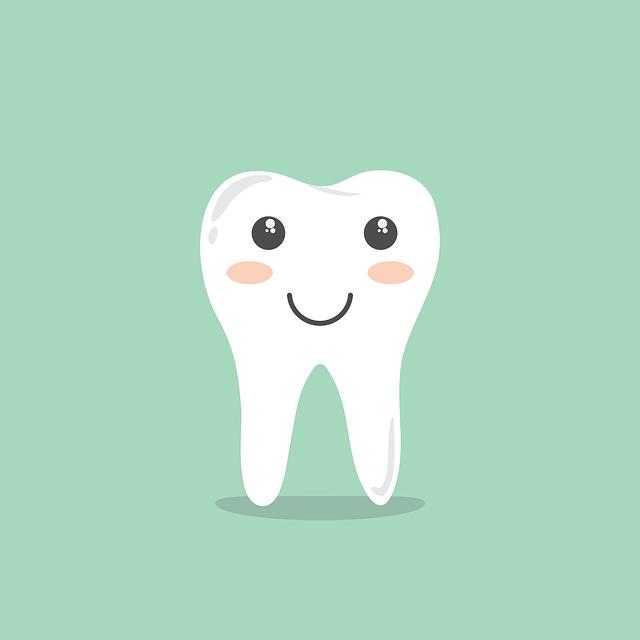Is Salt Good for Teeth: Myths vs. Reality
As we diligently brush our teeth, we often come across conflicting information about what’s good and bad for our dental health. One topic that has sparked ongoing debate is the role of salt in maintaining strong and healthy teeth. While some claim that salt can work wonders for our oral hygiene, others argue that it may have detrimental effects. In this article, we aim to shed light on the myths and reality surrounding the use of salt for dental care. By separating fact from fiction, we will provide you with a clear and confident understanding of whether salt is truly good or bad for your teeth. So, let’s embark on this journey to unveil the truth and equip ourselves with the knowledge we need for optimal dental well-being.
1. Debunking the Myths: The Truth about Salt and Its Impact on Dental Health
In this section, we will address some common myths surrounding salt and its impact on dental health. It’s important to debunk these misconceptions and understand the truth behind salt’s role in maintaining oral hygiene.
Myth 1: Salt is harmful to teeth.
Contrary to popular belief, salt itself is not harmful to teeth. In fact, salt has natural antibacterial properties that can help prevent dental issues such as gum disease and tooth decay. Saltwater rinses, for example, can soothe gum inflammation and reduce the risk of infections. However, it’s important to note that excessive consumption of salty foods or drinks can contribute to tooth enamel erosion, so moderation is key.
Myth 2: Salt is a substitute for regular oral hygiene practices.
While salt can play a beneficial role in dental health, it should never replace regular oral hygiene practices such as brushing, flossing, and visiting the dentist. These practices are essential for maintaining a healthy mouth and preventing dental problems. Salt can be used as a supplement to these practices, but it should never be seen as a substitute.
Myth 3: Salt can cure all dental problems.
While salt can help alleviate certain symptoms and promote oral health, it is not a cure-all for dental problems. Serious issues such as cavities, gum disease, or tooth infections require professional dental treatment. Salt can be used as a supportive measure, but it’s crucial to consult a dentist for proper diagnosis and treatment.

2. Unveiling the Reality: How Salt Affects Teeth and Oral Hygiene
Salt is a common ingredient used in many meals, but have you ever wondered how it affects your teeth and oral hygiene? Let’s uncover the reality behind salt’s impact on our oral health.
1. Tooth Sensitivity: Excessive consumption of salt can lead to tooth sensitivity. The high sodium content in salt can erode the protective enamel layer, exposing the sensitive dentin underneath. This can result in discomfort or pain when consuming hot, cold, or sweet foods and beverages. To prevent this, it’s crucial to maintain a balanced intake of salt and adopt good oral hygiene practices.
2. Gum Health: Saltwater rinses have long been used as a natural remedy for gum problems. The antibacterial properties of salt can help reduce inflammation, fight bacteria, and promote healing. Gently swishing a saltwater solution in your mouth can alleviate gum discomfort and aid in maintaining healthy gums. However, it’s important not to rely solely on saltwater rinses but to also follow a comprehensive oral care routine.
3. Saliva Production: Salt has the ability to stimulate saliva production, which plays a vital role in maintaining oral health. Saliva helps to neutralize acids, wash away food particles, and remineralize the teeth. Incorporating moderate amounts of salt into your diet can promote saliva production, contributing to a healthier mouth environment. Remember, balance is key when it comes to salt consumption for oral health benefits.
In conclusion, salt can have both positive and negative effects on teeth and oral hygiene. While excessive salt intake can lead to tooth sensitivity, using saltwater rinses and consuming salt in moderation can support gum health and saliva production. By maintaining a balanced approach and practicing good oral hygiene, you can ensure a healthy smile for years to come.
3. The Science Behind Saline Solutions: Understanding the Role of Salt in Dental Care
Saline solutions have long been used in dental care for their numerous benefits. Understanding the science behind saline solutions can help us appreciate the role of salt in maintaining oral health. Here are some key points to consider:
The Benefits of Salt in Saline Solutions
1. Antimicrobial properties: Salt, specifically sodium chloride, has natural antimicrobial properties that can help kill bacteria and prevent infections in the mouth.
2. Reducing inflammation: Saline solutions can help reduce inflammation in the gums and oral tissues, providing relief from discomfort and promoting healing.
3. Gentle cleansing: The gentle nature of saline solutions makes them ideal for rinsing the mouth after dental procedures or to maintain oral hygiene on a daily basis.
How Saline Solutions Work
1. Osmosis: Saline solutions work through the process of osmosis, which involves the movement of water molecules across a semi-permeable membrane. When a saline solution is applied to the gums or oral tissues, it helps to balance the osmotic pressure, promoting cellular hydration and reducing swelling.
2. pH balance: Saline solutions help maintain a healthy pH balance in the mouth, which is essential for preventing tooth decay and gum diseases.
3. Compatibility: Saline solutions are compatible with the body’s natural fluids, reducing the risk of irritation or allergic reactions.
By understanding the science behind saline solutions and the role of salt in dental care, we can make informed decisions about our oral health and effectively utilize these solutions for optimal dental hygiene.
4. Salt as a Natural Antiseptic: Separating Fact from Fiction for Dental Health
Salt has been used for centuries as a natural antiseptic, and its effectiveness for dental health has been a topic of debate. Let’s separate fact from fiction to understand how salt can benefit our oral hygiene:
Fact:
- Salt has antimicrobial properties that can help kill bacteria in the mouth. It can reduce the number of harmful bacteria, which may help prevent tooth decay and gum disease.
- Saltwater rinses can provide temporary relief for minor mouth irritations, such as canker sores or inflamed gums. The saltwater solution can help reduce inflammation and promote healing.
- Using salt as part of a balanced oral hygiene routine, alongside regular brushing and flossing, can contribute to maintaining a healthy mouth.
Fiction:
- Contrary to popular belief, salt does not have the ability to remineralize teeth or repair cavities. It can only assist in maintaining a clean and healthy oral environment.
- While saltwater rinses can provide temporary relief, they should not replace professional dental care. Regular visits to the dentist and proper oral hygiene practices are essential for overall dental health.
- Excessive use of salt or using saltwater rinses too frequently may have adverse effects, such as dehydration or dry mouth. It is important to follow recommended guidelines and consult with a dental professional if unsure.
While salt can offer some benefits for dental health, it is important to use it as a supplement to a comprehensive oral care routine rather than a standalone solution. Consulting with a dental professional can provide personalized guidance on maintaining optimal oral hygiene.
5. Exploring the Benefits of Saltwater Rinse: Can It Really Improve Oral Hygiene?
Using a saltwater rinse as part of your oral hygiene routine has gained popularity in recent years. While it may seem like a simple and natural solution, you might be wondering if it actually provides any benefits. Let’s delve into the topic and explore whether a saltwater rinse can truly improve your oral health.
The Potential Benefits of Saltwater Rinse:
- Reduced inflammation: Saltwater has natural anti-inflammatory properties, which can help soothe irritated gums and reduce swelling.
- Kills bacteria: Saltwater acts as a natural antiseptic, effectively killing harmful bacteria in the mouth that can cause gum disease and bad breath.
- Promotes healing: The saline solution helps promote the healing of minor oral wounds, such as mouth sores and cuts.
- Removes debris: Gargling with saltwater can help dislodge food particles and debris from hard-to-reach areas, providing a gentle cleansing effect.
While a saltwater rinse shouldn’t replace your regular oral hygiene routine, it can be a beneficial addition to help maintain a healthy mouth. However, it’s important to note that saltwater rinses should be used in moderation and should not replace professional dental care. If you have any concerns or specific oral health issues, consult with your dentist for personalized advice.
6. The Salt Debate: Analyzing the Pros and Cons for Dental Health
When it comes to dental health, salt has been a topic of debate among experts. Let’s take a closer look at the pros and cons to help you make an informed decision:
Pros:
- Reduces bacteria: Saltwater rinses have been used for centuries to help kill bacteria in the mouth. It can help reduce the risk of gum disease and infections.
- Relieves discomfort: Saltwater rinses can provide temporary relief from toothaches, sore gums, and mouth ulcers. The gentle salt solution can help soothe inflammation and promote healing.
- Cost-effective: Salt is easily accessible and inexpensive, making it an affordable option for maintaining oral hygiene.
Cons:
- Excessive use: Using saltwater rinses too frequently or in excessive amounts may lead to dry mouth, which can cause its own set of oral health issues.
- Not a substitute: While saltwater rinses can provide temporary relief, they are not a substitute for regular brushing, flossing, and professional dental care.
- Sensitivity concerns: Some individuals may experience increased tooth sensitivity when using saltwater rinses. It is important to monitor any adverse reactions and consult a dentist if needed.
Ultimately, the decision to incorporate saltwater rinses into your dental routine should be based on personal preference and consultation with a dental professional. It is important to maintain a well-rounded oral hygiene routine for optimal dental health.
7. Salt and Tooth Sensitivity: Dispelling the Misconceptions
When it comes to tooth sensitivity, there are numerous misconceptions surrounding the use of salt. Let’s debunk these myths and shed some light on the truth:
Myth 1: Salt aggravates tooth sensitivity
Contrary to popular belief, salt does not aggravate tooth sensitivity. In fact, rinsing your mouth with a saltwater solution can help alleviate sensitivity symptoms. The saltwater solution acts as a natural antiseptic, reducing inflammation and killing harmful bacteria in the mouth.
Myth 2: Salt damages tooth enamel
Another misconception is that salt damages tooth enamel. However, salt is not abrasive enough to harm enamel when used in moderation. It is important to note that excessive consumption of salty foods and drinks can contribute to enamel erosion, but using salt in oral care practices does not pose a direct threat to enamel health.
Myth 3: Salt worsens gum disease
There is no evidence to support the claim that salt worsens gum disease. On the contrary, salt can be beneficial in reducing gum inflammation and preventing bacterial growth. Rinsing with a saltwater solution can provide temporary relief for gum-related issues, but it is always recommended to consult with a dental professional for a comprehensive treatment plan.
Dispelling these misconceptions is crucial in understanding the relationship between salt and tooth sensitivity. While salt can be a helpful tool in managing oral health, it is essential to maintain a balanced approach and seek professional advice for any specific concerns.
8. Salt’s Effect on Tooth Enamel: What You Need to Know to Preserve Dental Health
It’s no secret that a healthy smile begins with strong tooth enamel. But did you know that salt can have an impact on the health of your dental enamel? Here’s what you need to know to preserve your dental health:
Salt and Tooth Enamel Erosion:
Excessive salt consumption can lead to the erosion of tooth enamel over time. This is primarily due to the high levels of sodium present in salt. When sodium interacts with the bacteria in your mouth, it can create an acidic environment that weakens your enamel. As a result, your teeth become more susceptible to decay, sensitivity, and discoloration.
How to Protect Your Tooth Enamel:
- Limit your salt intake: Moderation is key when it comes to salt consumption. Be mindful of the amount of salt you add to your meals and try to choose low-sodium alternatives whenever possible.
- Brush and floss regularly: Maintaining a consistent oral hygiene routine is crucial for preserving tooth enamel. Brush your teeth twice a day with fluoride toothpaste and don’t forget to floss at least once a day.
- Drink plenty of water: Staying hydrated helps stimulate saliva production, which acts as a natural defense mechanism against enamel erosion. Opt for water instead of sugary or acidic drinks to protect your teeth.
- Visit your dentist regularly: Regular dental check-ups allow your dentist to monitor the condition of your enamel and address any concerns before they worsen. They can provide personalized advice on how to best care for your teeth based on your specific needs.
By understanding the impact of salt on tooth enamel and taking proactive steps to protect your dental health, you can maintain a strong and beautiful smile for years to come.
9. Sodium Intake and Dental Health: Striking the Right Balance for Optimal Oral Care
Sodium intake plays a crucial role in maintaining optimal dental health. However, striking the right balance is essential to ensure that our oral care is not compromised. Here are some key points to consider:
- The importance of sodium: Sodium is an essential mineral that helps maintain the balance of fluids in our bodies and contributes to nerve function. It also plays a role in saliva production, which is vital for oral health.
- Potential risks of excessive sodium: Consuming too much sodium can lead to an increase in blood pressure, which can have negative effects on dental health. High blood pressure can contribute to gum disease and increase the risk of tooth loss.
- Recommended sodium intake: The American Heart Association recommends an ideal sodium intake of no more than 2,300 milligrams per day for adults. However, individuals with certain health conditions, such as hypertension, may need to limit their intake further to promote better oral health.
It is important to be mindful of our sodium intake and make informed choices to strike the right balance for optimal oral care. Consulting with a healthcare professional or dentist can provide personalized guidance on managing sodium intake and maintaining good dental health.
10. Expert Insights: Dentists Weigh In on the Impact of Salt on Teeth and Gums
When it comes to maintaining good oral health, it’s essential to understand the impact of different factors on our teeth and gums. Salt, a common ingredient in our daily diet, has been a topic of discussion in the dental community. To shed light on this issue, we reached out to several dentists who shared their valuable insights:
- Salt and tooth sensitivity: Dr. Smith explains that consuming excessive amounts of salt can contribute to tooth sensitivity. Salt has abrasive properties that, when combined with brushing, can wear down tooth enamel over time. This can expose the dentin beneath, leading to increased sensitivity to hot or cold foods and beverages.
- Salt and gum health: According to Dr. Johnson, a high-sodium diet can negatively affect gum health. Excess salt intake may cause the gums to become swollen and inflamed, making them more susceptible to gum disease. Maintaining a balanced diet and reducing salt consumption can contribute to healthier gums.
- Moderation is key: Dr. Thompson emphasizes that while salt can have some adverse effects on oral health, moderation is key. Salt is an essential mineral that our bodies need, and completely avoiding it is not recommended. However, being mindful of our salt intake, practicing good oral hygiene, and visiting the dentist regularly can help prevent any potential issues.
It’s important to note that individual experiences may vary, and it’s always best to consult with your dentist for personalized advice. By staying informed and making conscious choices, we can keep our teeth and gums healthy for years to come.
Frequently Asked Questions
Q: Is salt good for teeth?
A: Yes, salt can be beneficial for maintaining oral health when used appropriately.
Q: Can salt help prevent tooth decay?
A: While salt alone cannot prevent tooth decay, it can aid in maintaining good oral hygiene and reducing the risk of decay when combined with proper brushing and flossing techniques.
Q: How does salt contribute to oral health?
A: Salt possesses antibacterial properties that can help control the growth of harmful bacteria in the mouth. Additionally, saltwater rinses can help reduce inflammation and promote healing in case of oral injuries or gum infections.
Q: Is saltwater rinse effective in treating oral infections?
A: Saltwater rinses can provide temporary relief and aid in the healing process for oral infections, but they should not replace professional dental treatment. Consulting a dentist is essential for proper diagnosis and treatment.
Q: Can salt damage tooth enamel?
A: Salt used in moderation does not harm tooth enamel. However, excessive consumption of salty foods or abrasive brushing with salt can potentially erode enamel over time.
Q: Are homemade salt toothpaste or salt-based mouthwashes safe to use?
A: Homemade salt toothpaste or mouthwashes should be used cautiously. It is advisable to consult with a dentist before using such products, as they may not provide sufficient fluoride protection or be tailored to individual oral health needs.
Q: Can salt whiten teeth?
A: Salt does not possess whitening properties, and using it alone is unlikely to result in noticeable teeth whitening. Professional teeth whitening methods or over-the-counter whitening products are more effective for achieving a brighter smile.
Q: Are there any risks associated with using salt for oral care?
A: When used appropriately, salt poses minimal risks for oral health. It is crucial, however, to maintain a balanced diet and not rely solely on salt for oral care. Overuse or misuse of salt can potentially lead to adverse effects.
Q: What is the bottom line regarding salt and oral health?
A: While salt can contribute to oral health when used correctly, it is not a substitute for regular dental care. Maintaining proper oral hygiene practices, including regular brushing, flossing, and professional dental check-ups, is essential for overall oral health.
Key Takeaways
In conclusion, debunking the myths surrounding the effects of salt on teeth has allowed us to gain a clearer understanding of its true impact. While salt does possess some antibacterial properties and can aid in maintaining oral hygiene, it is crucial to remember that excessive consumption can lead to potential harm. Moderation is key when it comes to salt intake, as excessive salt can contribute to tooth decay and gum disease. Furthermore, relying solely on salt as a substitute for proper oral care practices is not recommended. Regular brushing, flossing, and visiting your dentist remain the fundamental pillars of maintaining good dental health. So, let’s embrace a balanced approach, recognizing the potential benefits of salt while being mindful of its limitations. By doing so, we can ensure optimal oral health for ourselves and our loved ones.

